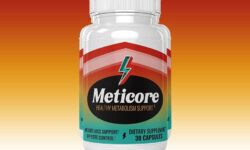How Long After A Sell By Date Are Eggs Good – Best Buy Date
How Long After A Sell By Date Are Eggs Good
How Long After A Sell By Date Are Eggs Good, The typical American ingests nearly 300 eggs annually. Regardless of whether they are acquired for boiling or as an ingredient in various recipes, eggs constitute a fundamental element in nearly every American household. If you share my inclination, along with that of numerous other consumers, you might occasionally find yourself overly enthusiastic in purchasing eggs—especially during events such as the COVID shutdowns and hurricane warnings—resulting in an excess that exceeds your consumption capacity before the expiration date looms.
In such situations, the seemingly imposing expiration date stamped on the egg carton can induce a sense of apprehension. However, exceeding the indicated timeframe doesn’t necessarily mandate hasty disposal of the eggs. Instead, let’s explore how long eggs can be safely consumed beyond the expiration date, delve into the expired egg test, and uncover additional insights on managing surplus eggs.

How Long After Sell By Date Eggs
Determining the viability of eggs beyond their sell-by date requires a nuanced approach. While the sell-by date provides a general guideline for freshness, eggs can often remain safe for consumption for a period after this date has passed.
Typically, eggs maintain their quality for 3-5 weeks beyond the sell-by date if stored properly. To ensure their longevity, it’s crucial to refrigerate eggs promptly and maintain a consistent cold temperature. The sell-by date is more of a reference for retailers and indicates the date until which the store should sell the eggs for optimal freshness.
To assess the freshness of eggs post sell-by date, you can perform the “float test.” Submerge the egg in a bowl of water – if it sinks to the bottom and lays flat on its side, it’s very fresh. If it stands upright on the bottom or floats, it might be older and should be used or tested promptly.
It’s essential to note that any unusual odors or changes in appearance, such as off-putting smells or unusual colors, could be indicative of spoilage. Exercise caution and use your judgment when deciding whether to consume eggs after the sell-by date, prioritizing safety and quality.
Eggs After Best Buy Date
The “Best By” or “Best Before” date on egg cartons is an indicator of the period during which the eggs are expected to be at their best quality in terms of flavor, texture, and nutritional value. However, eggs are often safe to consume for some time after this date if stored correctly.
Typically, eggs can remain good for consumption for 3-5 weeks after the “Best By” date, provided they are stored in the refrigerator at a consistent and low temperature. As with eggs past the sell-by date, it’s essential to perform the float test to assess their freshness. If the egg sinks and lays flat on its side, it is still fresh. If it stands upright on the bottom or floats, it may be older and should be used or tested promptly.
While the “Best By” date provides a useful guideline for quality, always use your senses to evaluate eggs. If there are any unusual odors, changes in color, or questionable appearances, err on the side of caution and discard the eggs.
In summary, eggs are generally safe for consumption for several weeks after the “Best By” date as long as they have been properly stored and pass the float test.
Are Eggs Good After Best Buy Date
Eggs can still be good for consumption after the “Best By” date, provided they have been stored properly. The “Best By” date on egg cartons is an indicator of the period during which the eggs are expected to be at their best quality in terms of flavor, texture, and nutritional value. However, it is not a strict expiration date.
If you find yourself with eggs past the “Best By” date, you can perform a simple test to assess their freshness. The float test is a reliable method: submerge the egg in a bowl of water – if it sinks to the bottom and lays flat on its side, it is still fresh. If it stands upright on the bottom or floats, it may be older and should be used or tested promptly.
As a general guideline, eggs can remain safe for consumption for 3-5 weeks beyond the “Best By” date if stored in the refrigerator at a consistent and low temperature. However, always trust your senses. If there are any unusual odors, changes in color, or questionable appearances, it’s advisable to discard the eggs to ensure safety and quality.
How Long After The Sell-By Date Are Eggs Good For
The sell-by date on egg cartons is an indicator for retailers and is meant to guide them on how long to display the eggs for sale for optimal freshness. Eggs are often safe for consumption for some time after the sell-by date if they have been stored properly.
In general, eggs can remain good for consumption for 3-5 weeks beyond the sell-by date if they are refrigerated at a consistent and low temperature. To determine the freshness of eggs after the sell-by date, you can perform the “float test”: submerge the egg in a bowl of water – if it sinks to the bottom and lays flat on its side, it’s still fresh. If it stands upright on the bottom or floats, it might be older and should be used or tested promptly.
It’s important to note that while the sell-by date provides a useful guideline, always use your senses to evaluate eggs. If there are any unusual odors, changes in color, or questionable appearances, it’s best to err on the side of caution and discard the eggs to ensure safety and quality.
How to Tell If Eggs Went Bad
Determining whether eggs have gone bad involves using your senses and performing a few simple tests. Here are some methods to check the freshness of eggs:
- Check the Expiration Date: If the eggs are past the sell-by or best-by date, it doesn’t necessarily mean they are bad, but it’s a good starting point for assessment.
- Float Test: Submerge the egg in a bowl of water. If it sinks to the bottom and lays flat on its side, it’s fresh. If it stands upright on the bottom or floats, it may be old and should be used or tested promptly. This is due to changes in the egg’s air cell over time.
- Smell Test: Fresh eggs have a relatively neutral odor. If you notice any unpleasant or sulfuric smells when you crack the egg open, it’s an indication of spoilage.
- Inspect the Shell: Check the eggshell for any cracks or unusual discoloration. A cracked shell can allow bacteria to enter, leading to spoilage.
- Examine the Egg White and Yolk: A fresh egg should have a clear and slightly thick egg white. If the egg white is cloudy or has an unusual texture, it may be a sign of spoilage. The yolk should be round and centered; any off-center or flattened yolk might indicate age.
- Listen to the Egg: Shake the egg near your ear. If you hear a sloshing sound, it could mean the egg white has broken down, which is a sign of age.
Remember that these methods are general guidelines, and individual eggs may vary. If you have any doubts about an egg’s freshness or notice any unusual characteristics, it’s safer to discard it to avoid the risk of consuming spoiled eggs.
How Long Do Eggs Last in Refrigerator
The shelf life of eggs in the refrigerator depends on various factors, including how they are stored and their freshness when purchased. Here are some general guidelines:
- Raw Whole Eggs: If stored in the refrigerator at a consistent temperature of 40°F (4°C) or below, raw whole eggs can be kept for 4-5 weeks beyond the pack date.
- Raw Egg Whites and Yolks Separated: When separated, raw egg whites and yolks have a shorter shelf life than whole eggs. Raw egg whites can be stored for 2-4 days, while raw egg yolks (with or without added sugar or salt) can be stored for 2-4 days as well.
- Hard-Boiled Eggs: Hard-boiled eggs, if kept in the refrigerator, can last up to one week.
It’s important to note that eggs should be refrigerated promptly after purchase and stored in their original carton to maintain freshness. The cool and stable environment of the refrigerator helps slow down the growth of bacteria.
To ensure the safety and quality of eggs, always check for signs of spoilage, such as unusual odors or changes in appearance. Additionally, the float test can be used to assess the freshness of raw eggs (as mentioned in previous responses).
If you have any doubts about the freshness of an egg, it’s advisable to err on the side of caution and discard it to avoid the risk of consuming spoiled or contaminated food.



